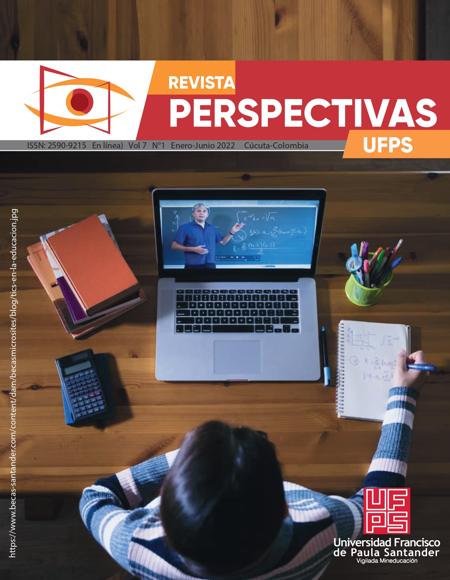Participación escolar: la escuela como centro para garantizar democracias sostenibles
Participación escolar: la escuela como centro para garantizar democracias sostenibles
Main Article Content
In today's increasingly complex and diverse world, it is necessary to redefine the meaning of participatory democracy and revalue the status of the citizen. Extremist movements, violence, racism, xenophobia and social exclusion threaten democracies, in addition to the challenges of globalization and far-reaching technological developments. Thus, each individual has a vital role to play in achieving democratic stability and peace in society, but these challenges are just as important in the classroom. They demand a new understanding of the rights and responsibilities of future citizens.
This reflective article analyzes school participation as an important and timely contribution to the emerging debate on the value of educating citizens and communities to empower them to participate in democratic change. It will argue, from the perspective of political sustainability, that education should reinvent learners as future citizens and as contributors to the democratic communities in which they live and work, demonstrating that democratic participation in school settings can provide a real means to enable members of different communities to learn to respect and value each other, thus ensuring the construction of inclusive and participatory democracies, especially those that can heal the ravages of capitalism and lay the foundations for a new society.
Downloads
Article Details
Abdullah, M. Y., Bakar, N., & Mahbob, M. H. (2012). Student’s Participation in Classroom:What Motivates them to Speak up? Procedia - Social and Behavioral Sciences, 51, 516–522. https://doi.org/10.1016/j.sbspro.2012.08.199 DOI: https://doi.org/10.1016/j.sbspro.2012.08.199
Albuquerque, J. A. G., Albuquerque, J. A. G., Barreto, A., Biersteker, T. J., Gedeon, P., Hayward, J., Kurzer, P., Marks, G., Merkel, W., & Vega-Cánovas, G. (1999). Regional integration and democracy: expanding on the European experience. Rowman & Littlefield.
Altman, D., & Perez-Linan, A. (2010). Assessing the Quality of Democracy: Freedom Competitiveness and Participation in Eighteen Latin American Countries. Democratization, 9. https://doi.org/10.1080/714000256 DOI: https://doi.org/10.1080/714000256
Bialik, M., Fadel, C., Trilling, B., Nilsson, P., & Groff, J. (2015). 21st Century Skills: What should students learn? Center for Curriculum Redesign, May. https://curriculumredesign.org/wp-content/uploads/CCR-Skills_FINAL_June2015.pdf
Campbell, D. E. (2006). What is education’s impact on civic and social engagement? Measuring the Effects of Education on Health and Civic Engagement, March, 1-387.
Copeland, B., Shapiro, J., & Taylor, M. S. (2021). Globalization and the Environment. https://doi.org/10.3386/w28797 DOI: https://doi.org/10.3386/w28797
de Groot, I., & Lo, J. (2020). The democratic school experiences framework: A tool for the design and self-assessment of democratic experiences in formal education. Education, Citizenship and Social Justice. https://doi.org/10.1177/1746197920971810 DOI: https://doi.org/10.1177/1746197920971810
de la Torre, C. (2014). Populism in Latin American Politics. Research in Political Sociology, 22, 79-100. https://doi.org/10.1108/S0895-993520140000022003 DOI: https://doi.org/10.1108/S0895-993520140000022003
Deeg, R. (2017). Governance and the Nation-State in a Global Era. En Governance in der politischen Ökonomie (pp. 57-106). VS Verlag für Sozialwissenschaften. https://doi.org/10.1007/978-3-531-90421-4_1 DOI: https://doi.org/10.1007/978-3-531-90421-4_1
Escobar, O. (2017). Pluralism and Democratic Participation: What Kind of Citizen are Citizens Invited to be? Contemporary Pragmatism, 14(4), 416-438. https://doi.org/10.1163/18758185-01404002 DOI: https://doi.org/10.1163/18758185-01404002
Fu, B.-J., Wang, S., Zhang, J., Hou, Z., & Li, J. (2019). Unravelling the Complexity in Achieving the 17 Sustainable Development Goals. https://doi.org/10.1093/nsr/nwz038/5381567 DOI: https://doi.org/10.1093/nsr/nwz038
Giommoni, T. (2021). Exposure to corruption and political participation: Evidence from Italian municipalities. European Journal of Political Economy, 68, 102000. https://doi.org/https://doi.org/10.1016/j.ejpoleco.2021.102000 DOI: https://doi.org/10.1016/j.ejpoleco.2021.102000
Hand, M., & Levinson, R. (2012). Discussing Controversial Issues in the Classroom. Educational Philosophy and Theory, 44(6), 614-629. https://doi.org/10.1111/j.1469-5812.2010.00732.x DOI: https://doi.org/10.1111/j.1469-5812.2010.00732.x
Le, H. P., & Ozturk, I. (2020). The impacts of globalization, financial development, government expenditures, and institutional quality on CO2 emissions in the presence of environmental Kuznets curve. Environmental Science and Pollution Research, 27(18), 22680-22697. https://doi.org/10.1007/s11356-020-08812-2 DOI: https://doi.org/10.1007/s11356-020-08812-2
Mainwaring, S., & Scully, T. (2008).
Latin America: Eight Lessons for Governance. Journal of Democracy, 19, 113-127. https://doi.org/10.1353/jod.0.0001 DOI: https://doi.org/10.1353/jod.0.0001
McCoy, J. L. (2007). Democracy in Latin America: Political Change in Comparative Perspective. Perspectives on Politics, 5(2), 397-399. https://doi.org/DOI: 10.1017/S1537592707071289 DOI: https://doi.org/10.1017/S1537592707071289
Meine, A. (2021). Democracy and territory. A necessary link? Critical Review of International Social and Political Philosophy, 24(6), 797-820. https://doi.org/10.1080/13698230.2019.1604046 DOI: https://doi.org/10.1080/13698230.2019.1604046
Naciones Unidas. (2015). Resolution adopted by the General Assembly on 25 September 2015.
O’Donell, G. (2007). Hacia un Estado de y para la Democracia en América Latina. En Democracia, Estado y Ciudadana en América Latina, hacia un Estado de y para la democracia en América Latina.
Qvortrup, M. (2020). Referendums, democracy and separatism. Review of Nationalities, 10, 1-13. https://doi.org/10.2478/pn-2020-0001 DOI: https://doi.org/10.2478/pn-2020-0001
Reich, S. (1998). What is globalization? Four possible answers. Working Paper of the Helen Kellogg Institute for International Studies, 261, 1-20.
Renier, S. (2016). The Many Lives of John Dewey’s Democracy and Education. European Journal of Pragmatism and American
Philosophy, VIII(1). https://doi.org/10.4000/ejpap.448 DOI: https://doi.org/10.4000/ejpap.448
Sabatino, M. (2016). The processes of globalization and transnational organized crime. Journal of International Business and Economics, 16, 61-82. https://doi.org/10.18374/JIBE-16-2.6 DOI: https://doi.org/10.18374/JIBE-16-2.6
Stoker, G. (2018). Governance as theory: five propositions. International Social Science Journal, 68(227-228), 15-24. https://doi.org/10.1111/issj.12189 DOI: https://doi.org/10.1111/issj.12189
Torney-Purta, J. (2002). The School’s Role in Developing Civic Engagement: A Study of Adolescents in Twenty-Eight Countries. Applied Developmental Science, 6(4), 203-212. https://doi.org/10.1207/S1532480X ADS0604_7 DOI: https://doi.org/10.1207/S1532480XADS0604_7
Yoldaş, Ö. B. (2015). Civic Education and Learning Democracy: Their Importance for Political Participation of Young People. Procedia - Social and Behavioral Sciences, 174(286), 544-549. https://doi.org/10.1016/j.sbspro.2015.01.703 DOI: https://doi.org/10.1016/j.sbspro.2015.01.703
Youngs, R. (2004). Democracy and the multinationals. Democratization, 11(1), 127-147. https://doi.org/10.1080/13510340412331294162 DOI: https://doi.org/10.1080/13510340412331294162
Zürn, M. (2004). Global Governance and Legitimacy Problems. Government and Opposition, 39(2), 260-287. https://doi.org/DOI: 10.1111/j.1477-7053.2004.00123.x DOI: https://doi.org/10.1111/j.1477-7053.2004.00123.x







